Existing User Log In
New User Registration
Register for a free account to gain full access to the VGChartz Network and join our thriving community.



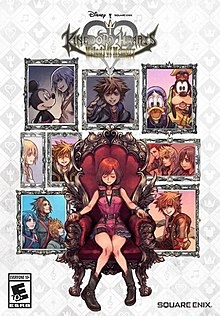

America - Front
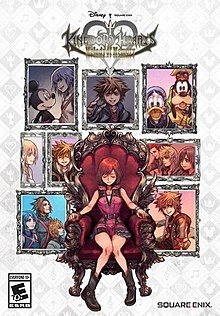

America - Back

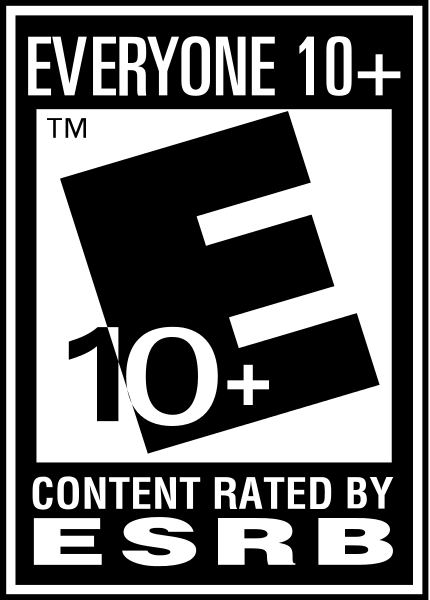
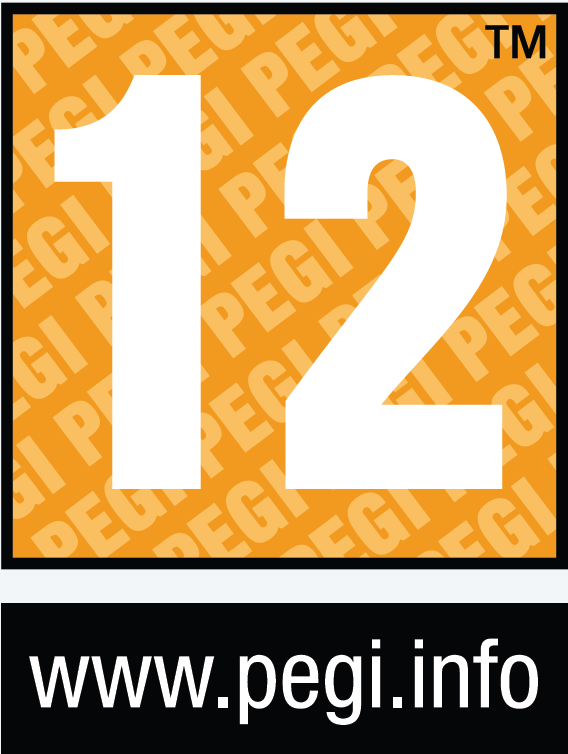
Kingdom Hearts: Melody of Memory
Square Enix
Music
 11/13/20 Square Enix
11/13/20 Square Enix  (Add Date)
(Add Date) 11/13/20 Square Enix
11/13/20 Square Enix
| Owners: | 0 |
| Favorite: | 0 |
| Tracked: | 0 |
| Wishlist: | 0 |
| Now Playing: | 0 |
A friend once told me the thing they enjoyed most about Kingdom Hearts was that they grew up alongside each other, which was an undeniable truth. Since its debut in 2002, the series has evolved far beyond anyone's wildest expectations, while my friend grew into the earnest and responsible person we always knew he would become.
However, the process of growth is never without its quirks. The card-based Chain of Memories was a clear sign that the franchise had no fear of coloring outside of the lines and was not afraid to experiment with introducing concepts fresh to the series. Melody of Memory continues this tradition with a game that, while enjoyable, plays it a little too safe for its own good.
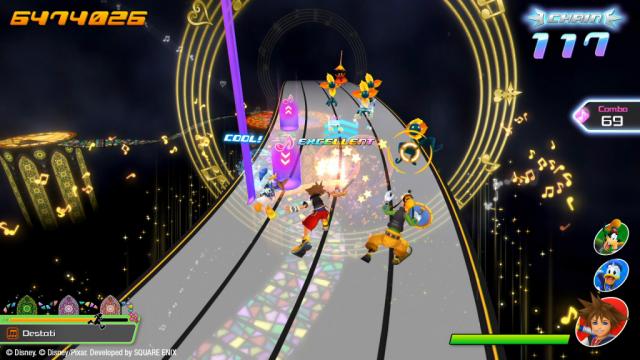
Borrowing more than a few notes from Hatsune Miku and Theaterhythm Final Fantasy, MoM's gameplay will be instantly recognizable to just about everybody passingly familiar with Guitar Hero or Dance Dance Revolution. As a musical track sets the pace, players are bombarded with a series of cascading prompts. With the proper timing, buttons must be pressed in rhythm with the song. Players are graded on a sliding scale for correct inputs, while missing them damages a character's health. Consecutive misses will result in failing the song, forcing players to re-evaluate their strategy. The fundamentals introduced to an entire generation by DDR are in full effect. MoM is quick to add its own spin to the mix, but ultimately the classic formula of the past rests at the game's core.
Classic elements from the series encase the game in its entirety and are as familiar and inviting as they've ever been. The Team Select screen is identical to the menu in the original Kingdom Hearts, from the sound effects down to the characters walking in place on screen. Stats such as HP and Defense translate from their RPG roots, and leveling up allows a team to survive longer, granting them the opportunity to challenge higher level songs. The Gummi Ship serves as the game's navigation during the World Tour, transporting parties between worlds and the various categories of musical groups.
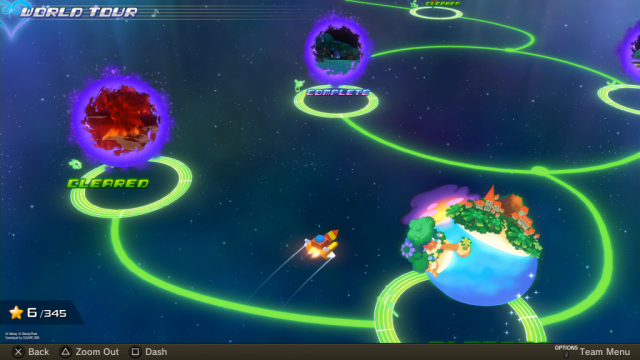
Perhaps the biggest wrinkle to the rhythm-based formula is the addition of Moogle Synthesis. This allows players to use materials gathered to create items that can influence gameplay, unlock new songs, profile customization paraphernalia, and other various collectibles.
By far the greatest success of MoM is how accurately the Kingdom Hearts experience has been translated from one genre to another. There have been direct sequels to games that have been less faithful to their predecessors, and for MoM to do this so effortlessly is worthy of consideration. The issue is that in most cases the game doesn't go as far to embrace its roots as it should have.
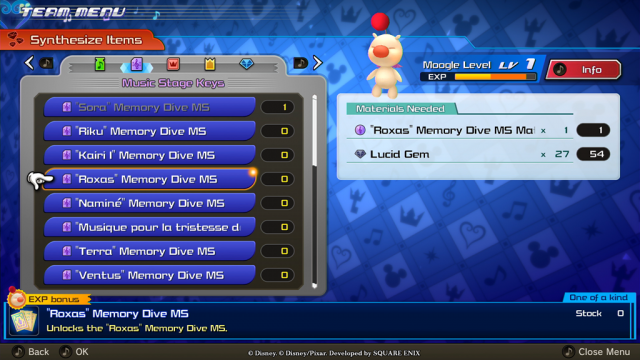
The aforementioned Moogle Synthesis is the main culprit in this respect. Crafting items to aid players throughout the game is a great idea, but is far too limited in scope. There are five items that can be crafted to use during gameplay: two types of HP restoring potions, an experience booster, a potion that increase the drop rate of items, and the King Mickey-calling Summoning Star (essentially a free pass of sorts). Coming from the source material of being able to synthesize accessories, weapons, or items that permanently increases a character's attributes, the crafting found in MoM leaves much to be desired. Seeing numbers for stats such as Strength is encouraging, but with no way to influence them outside of simply leveling up, they end up as little more than set dressing. The potential that RPG-type stats and item crafting could add to the rhythm genre is vast, it's a shame that almost none of it is used to full effect here.
This is felt most harshly in the amount of bonus material that can be synthesized. The songs make sense, but having to use resources to craft supplementary material that would unlock automatically in any other game feels hollow. The more MoM pretends to act like an RPG, the more it proves that it could have partially been one, if it had only went a little further.
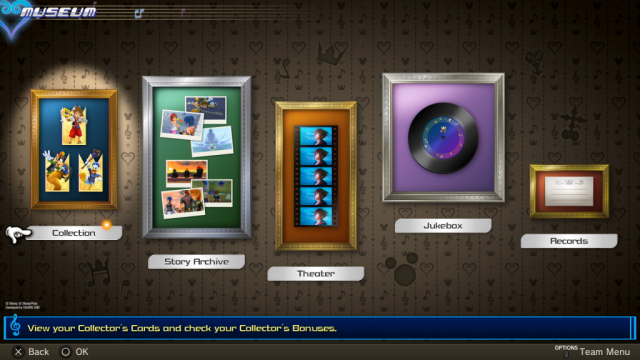
MoM offers various gameplay modes, all of which are standard fare. World Tour (the Main Quest) is where players will spend much of their time, as they navigate their way across the worlds, experiencing the series' music while learning about the story up to that point. Having only beaten the original game, I won't embarrass myself trying to explain any of it, but I will say I was unaware that Kingdom Hearts had become Square Enix's new Xenogears in terms of story complexity. MoM leaves its own mark in this sense, and fans will be delighted to know that its plot line is actually canon. It may not advance events as much as they might like, but there's definitely something to appreciate about this aspect of MoM. Most series would refuse to add anything new to a game that would probably be considered a spin-off, so to see MoM treated as 'one of the gang' is satisfying.
The sad part is that some of the gang are missing. Tarzan, Winnie the Pooh, and Pirates of the Carribean have been mostly excised, as if they were never there at all. The streets of Halloween Town feel emptier without Jack Skellington as a party member. I understand that Kingdom Hearts eventually outgrew the need for its older brother, Final Fantasy, but for there to be almost no acknowledgment of it at all is bizarre. The only thing stranger than not having Cloud in the group during 'One-Winged Angel' is lacking Sephiroth in the song at all. Did Square Enix have a problem with using its own character, or was Sephiroth's agent asking for too much money to make an appearance?
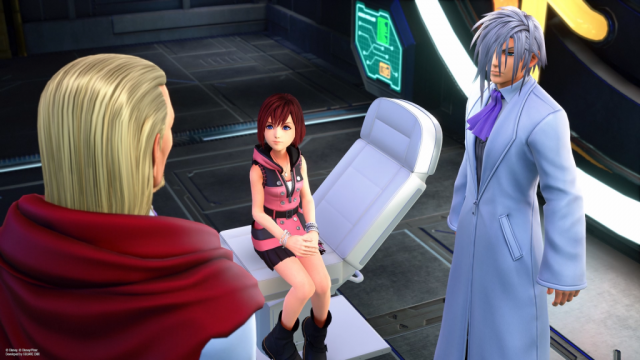
Co-op works as advertised, with two players working together as they play their song of choice. This is the only mode that can be played locally with more than one player, and as enjoyable as it is, it's not without faults. Despite the action taking place on isolated sides of the screen, both players are locked to the same difficulty. Dance Dance Revolution encountered a similar limitation and overcame it at least three console generations ago. To see this problem resurface in 2020 by a company with experience developing rhythm games isn't very encouraging. The fact that songs unlocked during the World Tour must be unlocked again in co-op is also disappointing. Multiplayer is already limited enough, the last thing it needs is to be gated in some fashion.
VS. Battles are also replete with questionable design choices. What should have been the game's best mode is easily its most frustrating. In an effort to curb competitiveness by removing the trappings of a traditional ranking system, indieszero has inadvertently created an environment that ironically is more cutthroat than the Ranked Modes found in other games.
COM Battles for the most part attempt to emulate the online portion of the game, with ineffective results. Its greatest benefit comes from introducing Tricks - spells that can be cast on opponents and which have a variety of effects. Unfortunately, even with items activated, the CPU opponents offer little challenge and do virtually nothing to prepare players for what awaits them over the internet.
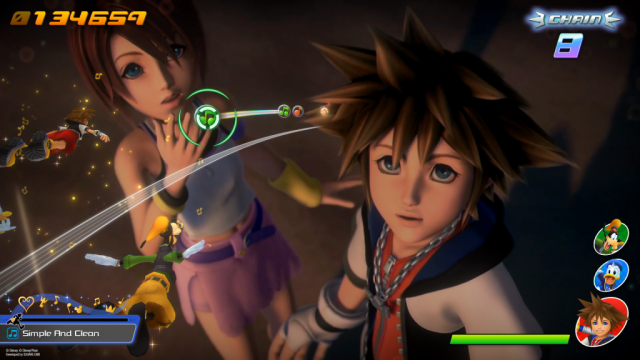
As much as it pains me to say it, the Online Mode might be the worst part about MoM. Its main problem could be fixed with a couple of patches and revisions, but for now it stands as one of the game's weakest areas.
On the surface, everything appears to be fine. Players choose what difficulty they wish to play on (if any) and whether or not they prefer to play with Tricks (an 'Either' option also exists). After this, players are matched up with one another based on their settings. The two each pick their song of choice, the game roulettes between the options, picks one, and it's off to the races. Here is where the problem lies.
Since there's no way to force a 'Random' option upon both opponents, players are left at each other's mercy in terms of what tracks they play. There's nothing stopping people from choosing the songs they're best at, and with over 140 to pick from, this isn't a difficult system to abuse. Master a more obscure song offline, then simply overwhelm an opponent who may not even have experience playing the music at that level. Tricks only make things worse, and it doesn't take much to be thrown into a situation where there's almost no chance of winning. Behavior like this is more prominent in Proud Mode, where players are essentially facing off like gunslingers bringing their best, yet hoping for a favorable roll. In time, this could benefit a potential competitive scene, but for the casuals it can be a rude awakening for those looking to simply have a fun time online.
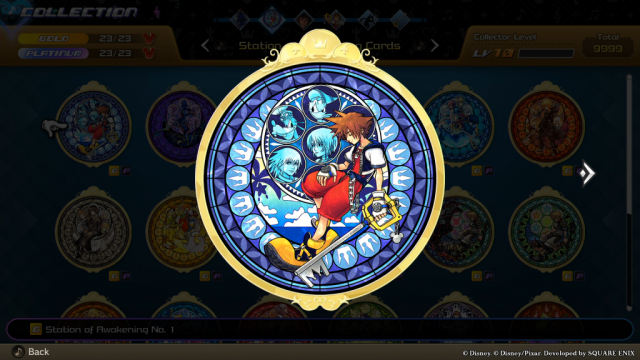
When all is said and done, Melody of Memory does what it sets out to do. The gameplay is simple, fun, and addictive, while the music is as wonderful as it always has been. Fans of Kingdom Hearts or rhythm games will both find something to love here, but most will be left wanting more. The RPG and other aspects that made the series what it is aren't nearly as fleshed out as they first appear to be. Hatsune Miku shouldn't be able to outperform the game in this area, yet it has. Outside of the World Tour, the other modes are not only lacking some basic features of the genre, but of gaming in general. In the end, MoM doesn't quite go the distance.
It's possible a remastered version with numerous abbreviations and equations for a name will come out down the road to enhance what's here for a wider audience. For now, most of the enjoyment that is to be found belongs in the hands of the diehards. Perhaps it's best to leave it in their care.









